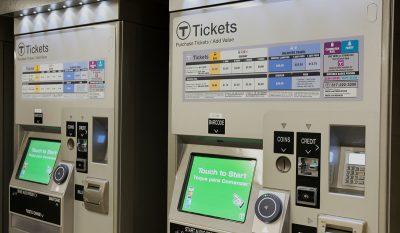
The MBTA rolled out plans to change its fare collection system at a virtual public meeting on Tuesday starting 2023, including changes to its payment options and ending the “passback” system.
Fare Transformation introduces new payment options including a new temporary and permanent CharlieCard, a mobile CharlieCard app and contactless credit cards. A $3 fee will apply to physical CharlieCards and the CharlieCard app but not to contactless cards or mobile wallets such as Apple Pay or Google Play.
“These fare media updates will provide MBTA riders with greater flexibility through the introduction of ‘tappable’ forms of payment that are compatible with future fare readers on buses and trolleys, allowing for all-door boarding and, ultimately, for faster service,” MBTA General Manager Steve Poftak said in a Feb. 10 press release.
Stella Guan, a daily T rider and intern at a local law firm, said the changes would help her.
“Right now I’m using a monthly pass, but I’m afraid of losing the card every single day,” Guan said. “I think it’s been pretty inconvenient having to use a CharlieCard instead of my own card.”
As part of Fare Transformation, the MBTA will discontinue the “passback” system — the ability to tap multiple riders through a gate with one card.
“We want to ensure that there’s no accidental charges on contactless credit cards,” MBTA director of fare policy and analytics Steven Povich said at the virtual meeting. “We want to allow for fare verification when we introduce all-door boarding to make sure that each passenger on our modes has proof that they paid.”
Elise Mason, community engagement manager of Transportation for Massachusetts, said the coalition does not support the $3 fee and ending the “passback” system.
“It would place a barrier on regular riders that rely heavily on public transportation who don’t have other transit options to get to work or to get to school or to get to medical appointments,” Mason said. “That’s not making paying for transit easier and more convenient for those people.”
Povich said the $3 fee will help cover the “one more trip” — allowing riders to board public transportation with insufficient or zero balance on their card to avoid leaving them stranded — and the cost to procure the cards.
Sue Kahn, a resident of Brookline, said the new changes are convenient.
“Where I live there’s no place to buy a new ticket,” Khan said. “So when I come into the city, that’s where I load up my CharlieCard. I might not worry about always keeping my CharlieCard filled.”
Fare Transformation will also cover the cost for Reduced Fare Riders program participants.
“We’ll also be partnering with local organizations in low income and minority neighborhoods to ensure that this cost is not a burden to our riders,” Povich said.
Mason urged riders to provide feedback for the upcoming public hearing on March 22.
“We encourage people to share just how impactful these changes would actually be so that the MBTA can make that decision with plenty of public input,” Mason said. “What we advocate for is making sure that the riders are getting the best service that they can get.”


















































































































